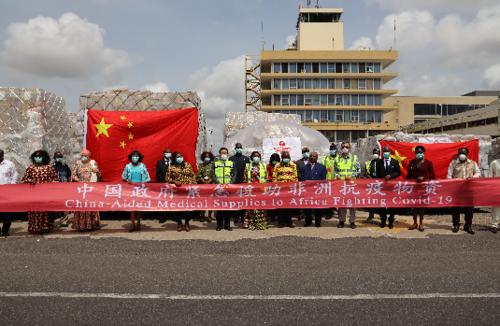We often see the news that China has provided a lot of assistance to Africa.
I don’t have specific figures, but a lot of information shows that China helps Africa tens of billions of dollars a year.
Some friends will have questions about how much money we spend to help Africa, so why not spend it at home?
In fact, the money we have to help Africa cannot be used at home.
If used at home, it will cause inflation.
Share with you today why money to help Africa cannot be spent at home.

— Aid money cannot be used at China–
The money we give to Africa is actually part of our foreign exchange reserves.
These foreign exchange reserves, which have been exchanged for the same amount of renminbi at home, are circulating in the domestic market.
Only RMB can be consumed in China.
If it is to be spent at home, it will have to be converted into RMB again, which is equivalent to spending twice a dollar. So much RMB entering the market will lead to inflation.
An easy-to-understand example.
A foreign trade company, exporting one million dollars of goods, made a million dollars back.
This million dollars can not be consumed at home, must be converted into RMB, in order to use in the country.
After the exchange, the company received the same amount of yuan (say 7 million yuan) and the state gave it an increase of $1 million.
The $1m that the state has in its hands is foreign exchange reserves.
These foreign exchange reserves, if they are to be spent at home, will have to be converted into RMB before they can be used.
If it does, it’s another 7 million yuan, and the money that comes out of it, going into the domestic market, could trigger inflation.
Therefore, these foreign exchange reserves in the hands of the state cannot be spent at home. Can only be used for international payments.
— Why invest in Africa —
The country has a lot of foreign exchange reserves.
These foreign exchange reserves also need to be protected and increased in value.
Usually, most countries buy U.S. Treasury bonds.
But buying a lot of Treasury bonds also has to worry about the risks that the U.S. will have to rely on.
The U.S. doesn’t have to know what to do.
This year, for example, the U.S. has oversized $3 trillion, and this kind of water release is a disguised debt.
Thus, in addition to buying U.S. Treasury bonds, out-of-country investment is also a means of maintaining value and increasing value.
The money we invest in Africa is part of our foreign exchange reserves.
We lent money to some countries in Africa. The ports and railways they build are often built by Chinese companies. It will also provide us with some mineral resources.
Our investments have helped African countries to develop infrastructure, to preserve and increase the value of their foreign exchange reserves, and to get the minerals we need. This is a win-win situation for many parties.
— Summary —
The U.S. has a strong impulse to put a lot of water on the dollar issue and let the world pay for it.
If the country has too much dollar in its hands, it will suffer because of the depreciation of the dollar.
Large amounts of dollars are at risk of staying on hand.
Switching to assets and resources is the most real.
It can also foster a new market by boosting the economic power of African countries.
In general, aid to Africa is a good thing for my country and for developing countries in Africa.
The country’s vision is very long-term, and we believe that aid to Africa is also an important part of the recovery strategy of our great powers.
China’s pursuit is very high, far beyond Europe and the United States.
Looking forward to China’s great power revival.
